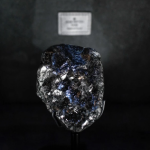Russian President Vladimir Putin on Thursday accused Ukraine of attempting to attack the Kursk nuclear power station, located about 50 kilometers (30 miles) from the area where Kyiv’s forces are carrying out a significant cross-border offensive.
At the same time, Moscow claimed to be making advances in eastern Ukraine, while Russian officials accused Kyiv of attacking and sinking a cargo ferry docked near the annexed Crimea peninsula.
“The enemy attempted to strike the nuclear power plant overnight. The International Atomic Energy Agency (IAEA) has been informed,” Putin said during a televised government meeting on Thursday. However, he did not provide any evidence or further details regarding the alleged attack.
This claim came shortly after the IAEA announced that its chief would visit the facility next week, following repeated Russian warnings about potential attacks since Ukrainian forces launched an offensive into Russia’s western Kursk region on August 6. The offensive, now in its third week, has seen Kyiv claim control of dozens of Russian border settlements, marking the most serious foreign military attack on Russian soil since World War II.
There had been no prior reports of the alleged strike on the nuclear facility in Russian media. Kursk regional governor Alexei Smirnov assured Putin that the facility was operating normally.
Ukrainian officials have yet to respond to Putin’s accusation.
Throughout the 2.5-year conflict, Ukraine and Russia have exchanged accusations of endangering nuclear safety. Russian forces captured the abandoned Chernobyl power plant in northern Ukraine and the Zaporizhzhia nuclear power plant—Europe’s largest—early in the invasion. Russia continues to control the Zaporizhzhia site and has been accused of “nuclear blackmail” by Ukrainian President Volodymyr Zelensky.
Moscow claims that Ukrainian forces have attempted multiple drone strikes on the Zaporizhzhia nuclear plant. Earlier this month, a fire broke out in one of the plant’s cooling towers, with Russia attributing it to a Ukrainian attack, while Kyiv accused Russia of intentionally starting the blaze.
Following Ukraine’s incursion into Russia’s Kursk region, the International Atomic Energy Agency (IAEA) called for “maximum restraint” from both sides to prevent a nuclear accident with potentially severe radiological consequences.
Meanwhile, Russian officials reported that a Ukrainian aerial attack sank a cargo ferry in southern Russia on Thursday.
The ferry, which was carrying fuel tanks, was docked at the port of Kavkaz in the Kerch Strait, separating Russia from the annexed Crimean Peninsula. After the attack, officials in Kyiv made cryptic remarks, with Daria Zarivna, a communications adviser to Ukrainian President Volodymyr Zelensky, posting a photo of a large fire at the port on Telegram with the caption “Beautiful.”
Ukraine’s surprise offensive in Russia’s Kursk region has shifted the conflict’s dynamics, boosting Ukrainian morale more than two years after Russia’s initial invasion. On Thursday, Zelensky visited his commander-in-chief in the Sumy border region, where Ukraine is sending troops and military equipment into Russia.
However, Ukrainian forces continue to face significant challenges in the eastern Donetsk region, where they have been under sustained pressure for months. On Thursday, Russia claimed to have captured another small village in the area.
In Russia, President Putin has faced criticism for allegedly downplaying the severity of Ukraine’s incursion.
Kursk Governor Alexei Smirnov reported on Thursday that 133,000 people have fled or been evacuated from border districts since Ukraine’s attack began. In response, concrete air-raid shelters are being installed in cities across the region, including Kurchatov, which is located near the Kursk Nuclear Power Plant.
Additionally, over 110 Russian schools close to the border will begin the academic year with remote classes in September, according to the education minister.
Meanwhile, Russia’s FSB security service announced that it had initiated a criminal case against several journalists, including CNN correspondent Nick Paton Walsh, for allegedly “illegally” crossing the border while reporting from the Kursk region.



